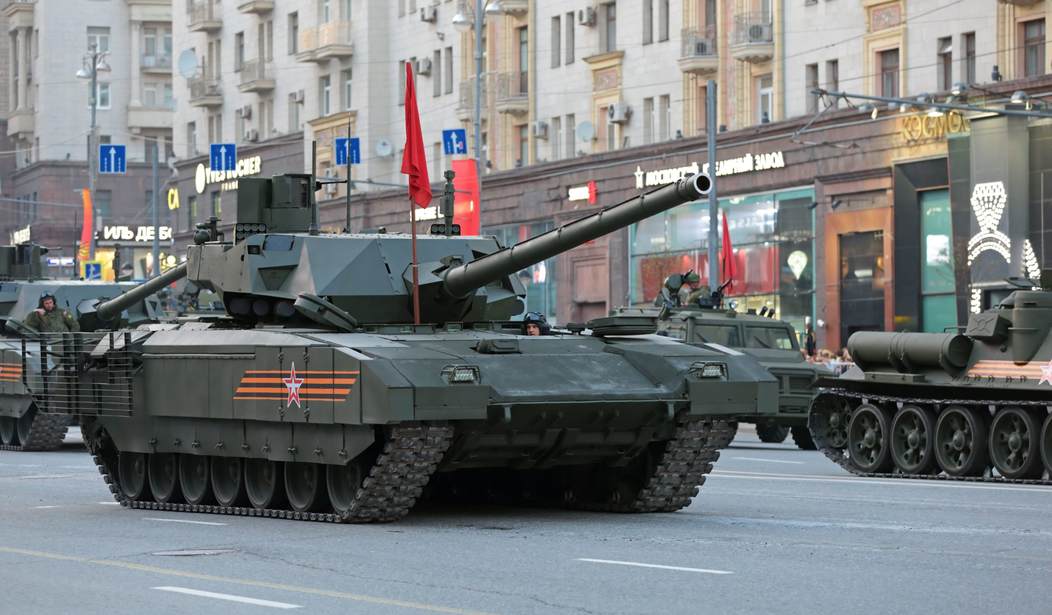Daniel L. Davis reports on the Pentagon’s broken procurement system:
The rest of the world has simply not suffered from the same acquisition impotence as the Pentagon. The yawning capability gap that once existed between the United States and the rest of the world has now shriveled to nearly nothing. The clearest example—and should be the most embarrassing to America—has been the creation and now production of the Russian Armata Universal Combat Platform.
The FCS was supposed to have been a “system of systems” using a common chassis among eight different ground combat vehicles, highlighted by a mobile tank-like vehicle and an infantry carrier. After ten years and $20 billion FCS produced nothing. Meanwhile on the other side of the world, the Russians needed only six years to design, test and then start producing technologically advanced combat vehicles, highlighted by the Armata T-14 tank and T-15 personnel carrier. Both employ state-of-the-art armor, weapon systems, ammunition and fire-control systems. The T-14 in particular appears to be just as survivable and deadly as the U.S. Abrams tank. In 1991, the Abrams could have won a tank-on-tank engagement against possibly every potential enemy tank in the world.
That advantage has been lost.
How can Washington’s acquisition failure be explained in light of Moscow’s success? It should be of no small concern that America is becoming comparatively weaker militarily against Russia owing not to inferior intellectual ability, financial strength or industrial capability, but to a self-deluding arrogance.
Air Force procurement has problems, the Army is a mess, and I worry that Navy procurement is so fundamentally screwed up that we’re going to end up with a fleet of half as many aircraft carriers as we need, “protected” by multi-billion-dollar littoral “combat” ships.
The problem is a bipartisan one, affecting both Democrat and Republican administrations, and enabled by a CYA-at-all-costs attitude at the Pentagon. The next president needs to clear out the rot, or find themselves in possession of what Robert Heinlein called the most expensive thing in the world — a second-best military.










Join the conversation as a VIP Member